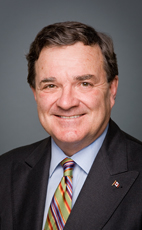Mr. Speaker, the landmark tax-free savings account, TFSA, is a flexible, registered account that our government introduced to help Canadians with their different savings needs over their lifetimes by allowing them to set money aside in eligible investment vehicles, and watch those savings grow tax-free.
Jon Kesselman, a research fellow at the C.D. Howe Institute, declared TFSA “the most significant advance in Canada's tax treatment of personal savings since the registered retirement savings plan was launched in 1957.” John Stapleton, a policy fellow with the Metcalf Foundation and St. Christopher House, and Richard Shillington, a senior associate at Informetrica Limited, jointly proclaimed it “an instrument that has the potential to provide low-income Canadians with real choices in planning for their future.”
The tax savings from the TFSA were estimated in the budget presented to the House of Commons on February 26, 2008, to be $5 million in 2008–09, $50 million in 2009–10, $190 million in 2010-11, $290 million in 2011-12, and $385 million in 2012–13. As the TFSA matures over the next 20 years, the annual tax savings will continue to grow—it is estimated that, relative to the size of today’s economy, these tax savings will grow to over $3 billion annually.

